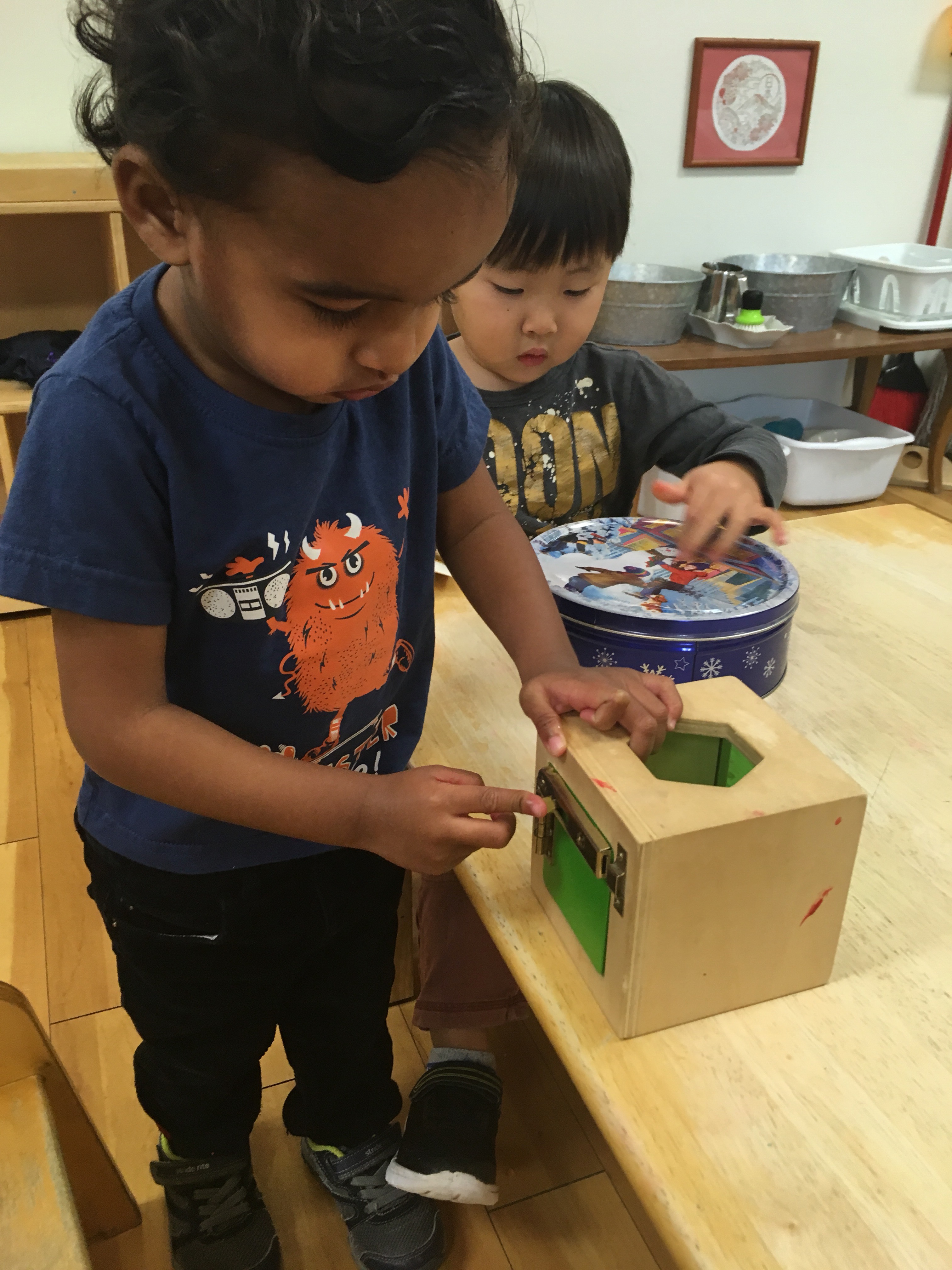(858) 759-0631
I recently read a book containing various articles from Maria Montessori’s studies. A chapter that stood out to me was about a young boy named Feliciano, who, from birth was given the freedom to roam his room. Throughout his growth and exploration, they provided him with apparatus’ that he took to instead of putting objects or toys into his room. Feliciano's mother eagerly observed her child without interfering. He spent minutes to hours practicing how to open and close certain things he had found throughout the house. Maria focused on Feliciano to highlight the importance of how simple your child’s needs are.
“The parents who understand this and know how a child selects what he needs from his surroundings and teaches himself are giving their children a far finer start in life than parents who believe that they are giving their children the best care by providing them with a nursery full of toys and a nanny to supervise their every moment.”
For your child to grow, it lies within themselves. We cannot teach growth, we can only provide the best environment for them to grow in. I like to compare them to a flower to help visualize it better. If you overwater a flower, the soil turns sour and the flower eventually becomes sick. A child who is placed in an over-stimulated home can experience overwhelming feelings which can lead to aggressive behavior and neediness. Simplify things for your child, save those beautiful objects for when your child can take time to understand the history of where and who it came from.
When a child is interested in something, they begin to repeat it many times without fatigue. Once your child has gained what they needed from this object they will move on to the next. Sometimes we face situations about boundaries. For example, a rule you have in your home is to always turn the water off when we are not using it. Say we have a child who enjoys just watching this water flow. Instead of getting upset about the running water (especially with living in California) take this time to help your child grow. Allow your child to turn on the water and show them by turning the handle it can adjust the water pressure. Make sure to end the moment by turning the water off so they also remember when they are done turning off the water. Once your child has mastered this, they will lose interest in the exploration of the sink and their former mischief behavior will come to an end (with this one particular task).
We as adults are your child’s biggest obstacles. It’s easy for us to get dressed and eat in the morning. For a child, this is all new to them. When we provide everything for the child, we are hindering their development. It is for them to feel complete by doing things for themselves.
“To give our children a fine start in life we must see that their surroundings satisfy their need for activity and development, remembering at the same time that our part is not that of instructor and interferer but helper and friend.”

